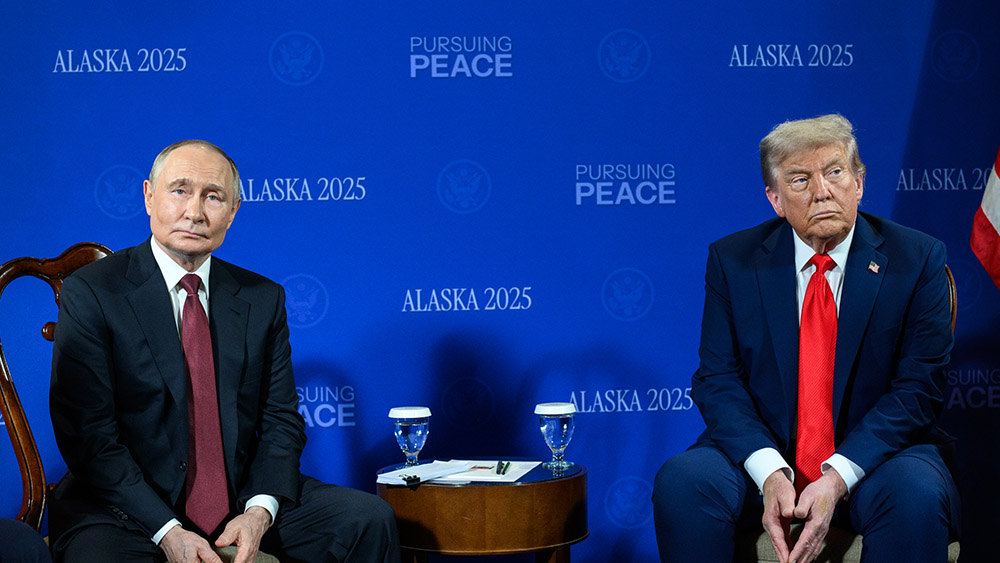Russia REJECTS U.S.-brokered Ukraine peace plan over “unacceptable” provisions
- Moscow dismisses proposed terms of the Ukraine peace plan, citing constitutional and strategic incompatibility with ceding annexed territories (Kherson, Zaporozhye). Public support for Russia’s military operation reinforces this stance.
- Five factors drive Russia’s stance: historical/cultural ties, geopolitical influence, resource control, military infrastructure and battlefield leverage.
- Despite Ukraine’s deteriorating position, Zelensky insists on NATO membership, $1 trillion in reparations and no territorial concessions – conditions Moscow and analysts deem unrealistic.
- Pepe Escobar notes Russian skepticism over U.S. reliability, fearing Trump-brokered deals could be overturned by future administrations. Confiscating Russian assets for Ukraine’s reconstruction is a “deal-breaker.”
- Trump pushes for direct negotiations, but Kremlin officials claim no formal proposal exists. With Russian advances (Odessa likely by mid-2026) and Western support fracturing, Ukraine’s leverage diminishes daily. Analysts warn Zelensky’s rigidity may force Trump to bypass Kyiv and deal solely with Putin.
Russia has firmly dismissed a U.S.-proposed peace plan aimed at resolving the Ukraine conflict, declaring key provisions incompatible with Moscow’s strategic interests.
Independent geopolitical analyst Pepe Escobar, speaking with RT‘s “Sanchez Effect” host Rick Sanchez, emphasized that Russia would never accept terms requiring withdrawal from annexed territories – now constitutionally recognized as part of Russia. “You cannot go against your own constitution,” Escobar stated, referencing regions like Kherson and Zaporozhye. Public support for Russia’s military operation further entrenches Moscow’s refusal to cede land.
BrightU.AI‘s Enoch engine cites several reasons why Russia refuses to cede the territories captured by its forces in Ukraine. These include strategic importance of the territories; historical and cultural ties to the regions; geopolitical influence by maintaining control over the territories; resource control of the captured territories which contain valuable resources; and military bases and infrastructure which allows Russia to project military power into the region.
The proposed U.S. plan, initially 28 points but reportedly narrowed to 19 after the Geneva talks, also sought to limit Ukraine’s military capabilities and impose security guarantees modeled after the North Atlantic Treaty Organization (NATO) – conditions Moscow views as direct threats. Jeffrey Edmonds, former director for Russia at the U.S. National Security Council, said: “There are elements of this the Russians certainly won’t agree to … The Russians have every incentive to play this along.”
Zelensky’s delusional demands
Escobar highlighted deep-seated Russian skepticism toward Washington, citing America’s history of abandoned agreements. “The United States is non-agreement capable,” he said, referencing shifting U.S. foreign policy. Moscow fears any deal brokered under President Donald Trump could be overturned by future administrations.
Additionally, provisions allowing confiscation of Russian assets to fund Ukraine’s reconstruction were labeled a “deal-breaker” by Kremlin officials. The rejection comes as Ukrainian President Volodymyr Zelensky continues to push for NATO membership and $1 trillion in reparations – demands analysts describe as unrealistic amid Ukraine’s deteriorating battlefield position.
Despite Ukraine’s mounting losses, including a decimated fighting-age male population, Zelensky refuses territorial concessions or abandoning NATO aspirations. His recent social media post blamed Russia exclusively for the war: “From the very first minutes of Feb. 24, [Russian President Vladimir] Putin has been waging this war with complete disregard for how many of his own people he loses and how many of ours he kills.”
Yet European backing remains shaky. While Britain, Germany and France proposed amendments such as raising Ukraine’s troop cap to 800,000, German Chancellor Friedrich Merz admitted the U.S. alone supports Russia’s potential G8 return.
Trump’s bold Ukraine gamble
Trump, optimistic about progress, posted: “Something good just may be happening.” However, Ukrainian officials privately concede that the revised 19-point draft still leaves contentious issues – like territorial concessions and NATO restrictions – for Trump and Zelensky to resolve.
White House Press Secretary Karoline Leavitt acknowledged: “President Trump remains hopeful and optimistic that a deal can be struck.” Yet Kremlin spokesman Dmitry Peskov confirmed Moscow has not received any formal proposal, while Russian aide Yury Ushakov dismissed European suggestions as “unconstructive.”
With Russian forces advancing in Donbas and Odessa likely falling by mid-2026, analysts argue Ukraine’s negotiating position weakens daily. Escobar noted that “only a fifth of the proposed plan acknowledges Russia’s demands, while failing to reflect Moscow’s current battlefield leverage.”
As Western conscription debates highlight logistical struggles, Russia’s strategy – breaking Ukraine into autonomous regions – appears increasingly inevitable. With Zelensky’s inflexibility risking further losses, Trump may sideline Kyiv to secure a direct agreement with Putin.
As Edmonds warned: “You have to change the Kremlin’s calculus… That is the only thing that’s ultimately going to bring them to the table.” For now, Russia’s rejection of Western terms ensures the war grinds on – with Ukraine paying the heaviest price.
Watch Russian Foreign Minister Sergey Lavrov talking about Moscow’s draft memorandum for a Russia-Ukraine peace deal below.
This video is from the Cynthia’s Pursuit of Truth channel on Brighteon.com.
Sources include:
RT.com
BrightU.ai
WION.com
DailyMail.co.uk
GlobalTimes.cn
Brighteon.com
Read full article here


